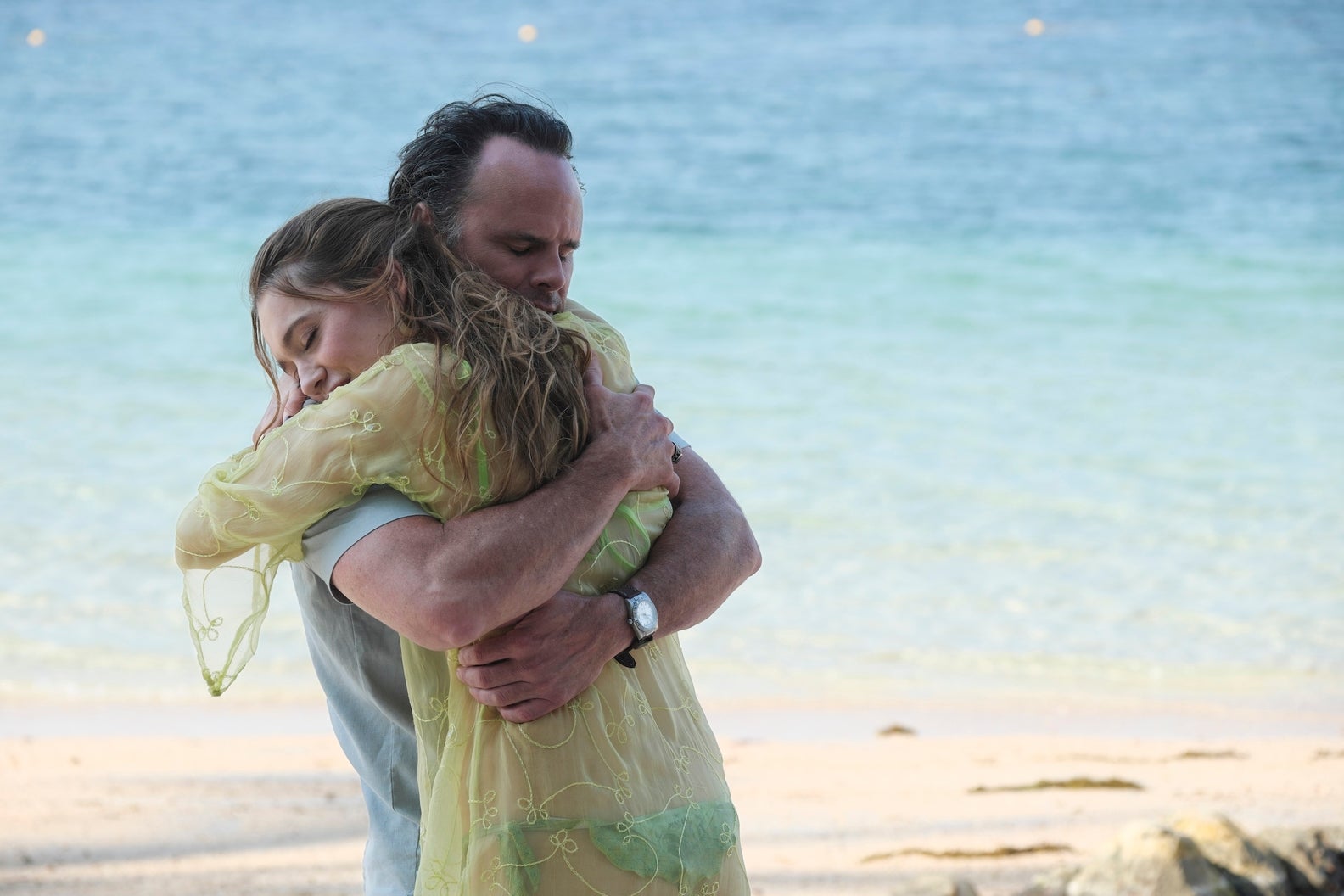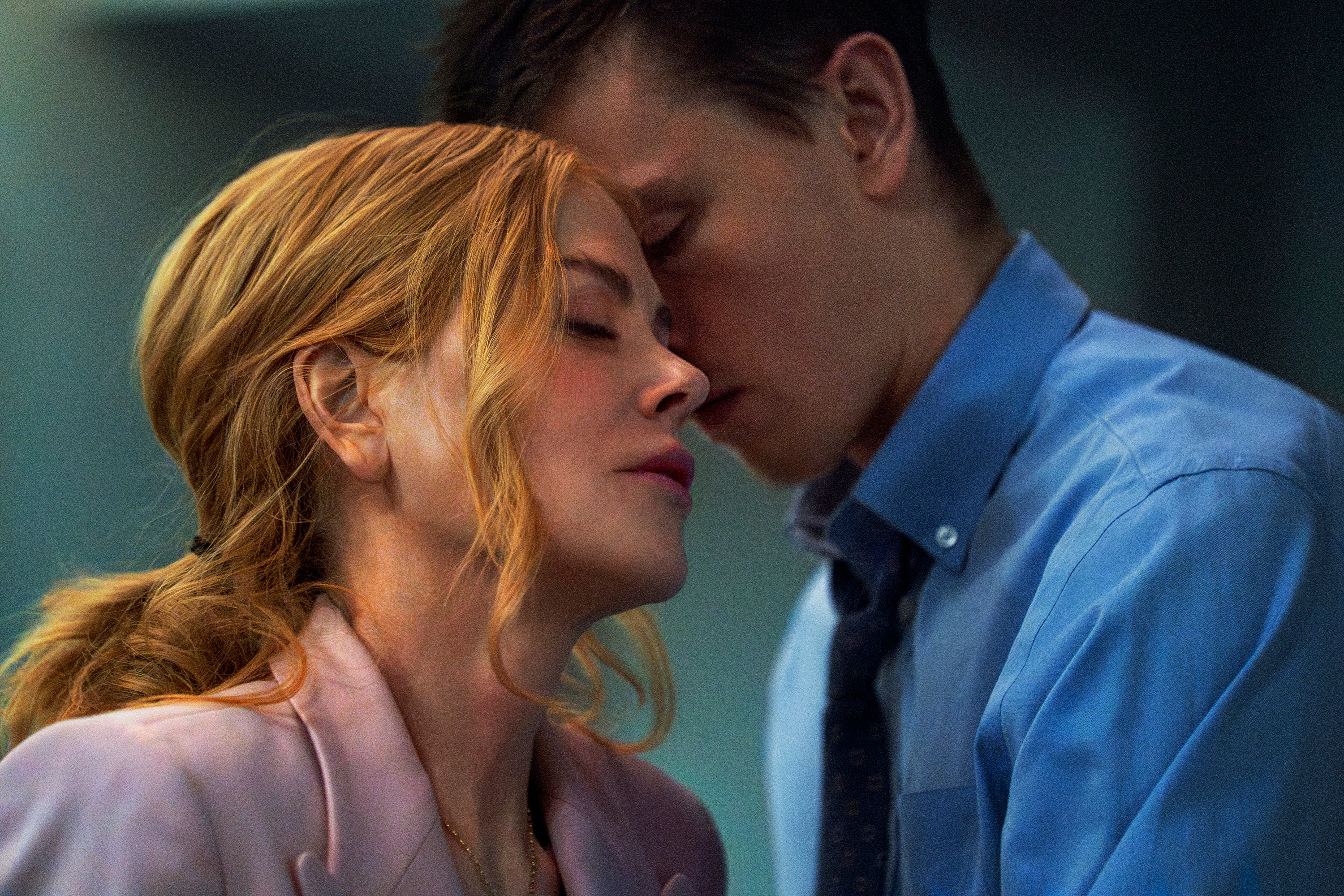Gen Z women are now in favour of age-gap relationships – and not for the reason you think
In a world where more and more younger men are following Andrew Tate and going deeper into the manosphere, a rising number of Gen Z women are choosing to date older people. Chloe Combi reports

One of the questions I’m asked most in my work is what distinguishes Generation Z from older generations – millennials, Gen X and boomers? The most obvious answer is Gen Z are the first true digital natives raised on a diet of social media, giving them instantaneous access to information and an experience of never having to wait. Want to see that film or hear a piece of music? It’s there at the touch of a button. This has obviously shaped every aspect of their lives, from the cultural to the emotional to the intellectual.
But there is another more subtle change happening – and that is their acceptance of, even desire for, age-gap relationships.
As little as 10 or 15 years ago, and even further back to the Nineties, Eighties and Seventies, relationships with big age gaps were everywhere. These were predominantly the older man/younger woman dynamic, and nobody blinked when a celebrity older man married a young ingenue or a silver-haired actor got off with a much younger woman in films or TV.
Whether it was the 39-year age gap between Sean Connery and Catherine Zeta-Jones in 1999’s Entrapment or a (then) 17-year-old Keira Knightley marrying Chiwetel Ejiofor (26 at the time) in 2005’s Love Actually, the audience reaction wasn’t so much “meh” as they didn’t even notice. And that’s because art was imitating life. Back then, there was an insouciant acceptance – celebration even – when rich, older men married pretty young girls.
Looking back over near-ish history, the largely approving tabloid excitement over 35-year-old Chris Evans marrying 18-year-old Billie Piper, or Bill Wyman getting together with Mandy Smith (he was 47 to her 13 when he began the relationship), is astonishing.
The “boys will be boys” tabloid tone of that era (despite the fact that neither Evans nor Wyman were remotely boys) and intimation that that’s just what men with loadsa money do makes for seriously queasy reading from today’s perspective.
It is worth noting that the women from the same era who dated much younger men – Madonna and Demi Moore, for example – weren’t treated nearly as forgivingly by the press or public.

The contrast in both perception and discussion of big age gaps has shifted so profoundly in the last 10 or 15 years that those who indulge aren’t just labelled as “cradle snatchers” but quite often straight-up predatory. And the age group that has been most unforgiving is Gen Z.
TV shows and films now tread extremely carefully around age gaps in couples, and today’s audiences mostly see people partnered with others of the same age – which is refreshing for those who grew up thinking the older man/younger woman dynamic was the norm. For celebrities who ignore current conventions (even in relationships ones they insist are completely platonic), it can be if not career-ending then certainly career-damaging. Just ask Drake.
Talking to Gen Z over the last five years – both boys and girls – I found that the message was clear on big age-gap relationships: they gave them the ick. But in the last year or two, something curious has started to happen and this was crystallised by a talk I did with some 18-year-old girls last week, who were all abuzz about the finale of The White Lotus.

The standout plotline of this series was the relationship between Rick and Chelsea (played by Walton Goggins and Aimee Lou Wood). There is a notable and intentional age gap between the actors/onscreen couple – Goggins is 53, Wood is 31 – but this didn’t elicit the “ew, gross” reaction I was expecting – quite the contrary.
Olivia (aged 18): “I totally get why Chelsea was with Rick and chose him over Saxon. Saxon is such a f***boy, and we all know a guy like him, and we’re so over it. [He’s the] type who says ‘I support women’s equal rights, but…’ whereas Rick was concerned with bigger things, and Chelsea believed they were soulmates. The age gap didn’t matter to her, and I totally get that!”
Kate (also aged 18): “Rick all the way! Saxon was just so basic, and you could tell by looking at him the type of views he’s going to have. Rick might have been moody and a bit murder-y, but I bet he doesn’t listen to Joe Rogan – if he [Rick] was an actual person.”
The girls’ focus on what Rick’s values and preoccupations might have been in real life is an important clue into what might be driving this change in perception of age-gap relationships. Another thing that distinguishes Gen Z is the growing divergence between young men and women. As young Gen Z women embrace more liberal values, particularly in the areas of gender equality, body autonomy and how they vote, young men are leaning moderate to conservative.

To pick up on Kate’s namechecking of Joe Rogan and the strong influence he (and many of his contemporaries) have on young guys and many of their views, 81 per cent of his listeners are male, with just 19 per cent of women tuning in. Interestingly, 56 per cent of Rogan’s listeners are in the 18-34 category, with a much lower 37 per cent in the 35-54 age group.
Liza (aged 19) dates someone in his late-twenties and explains: “I’m quite gobby and I’d go on the odd date with someone my age and more often than not it would end up in a straight-up argument when he started saying Andrew Tate makes good points or they’d prefer a woman to stay at home. It’s the experience of a lot of my friends with same-age relationships. My boyfriend is super chill, a feminist and weirdly, so are most of his mates. He missed all the manosphere stuff and it shows.”
This isn’t to suggest one ideological leaning is right or wrong, but what it does suggest is a growing incompatibility between Gen Z men and women – and the facts bear this out in quite stark and depressing ways. Only 56 per cent of Gen Z reported having a romantic relationship in their teens, which is a precipitous drop from 78 per cent of boomers, 76 per cent of Gen X and 61 per cent of millennials.
The reasons for this are complex and have much to do with economics, lower mobility (far fewer older teens drive now), and technology replacing IRL dating and friendships – but Gen Z gender incompatibility does seem to be a missed and driving factor in the implosion of young, romantic relationships in the modern world.

And it’s not just the girls getting into the May-December curiosity. To go back to life imitating art, there has been a recent influx of high-profile films and TV depicting older women getting it on with younger men: Good Luck to You, Leo Grande, Babygirl and The Idea of You have all been enthusiastically received as a refreshing inversion of the older man/younger woman dynamic. Mikey (aged 22), who is dating a woman in her late-twenties, sees the appeal: “Girls my age – and I’m not being horrible – are too needy. They all claim to be empowered but I don’t see much sign of it. I’m really enjoying being with a woman who’s together and has done some really interesting stuff.”
Bumble, the wildly popular dating app, has picked up on this shift and noted that 2024 was the year cross-generational (or “gen-blend”) relationships began to surge, with 63 per cent of their users saying an age gap doesn’t matter.
The key thing that sorts the “ick” from “OK” always has to be the power balance. Nobody has to explain why the Wyman/Smith coupling was very, very ick, but things don’t have to be that extreme for a relationship to veer into toxic territory. The question any couple should ask, irrespective of age, is whether there is equal power, respect and needs being met.
All that being said, the disparity between Gen Z young men and women is not something we should all shrug about as we cheerfully usher in a new era of “gen-blend”. Lots of young men report feeling left behind in higher education and society, which is certainly a factor in their unwillingness or lack of confidence to date their peers, and equally lots of young women feel frightened by the growing levels of casual sexism and misogyny – a major factor in their unwillingness to date their peers.
Trends and changes in attitude hint at important things, and this generational incompatibility is already having obvious consequences: declining happiness, much lower predicted birth rates, and a negative view of the future among young people.
Maybe we should be thinking more about that and how to fix it – and less about Rick, Chelsea and her amazing teeth!





Join our commenting forum
Join thought-provoking conversations, follow other Independent readers and see their replies
Comments